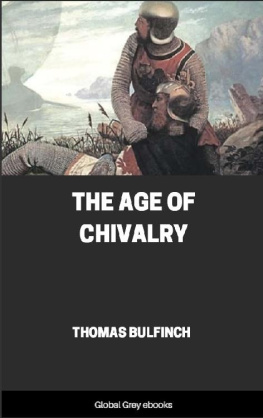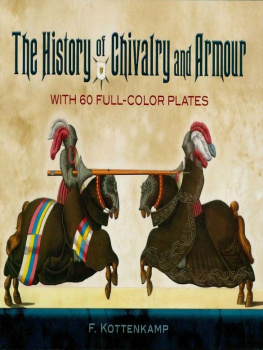First published in 2004 by
Kegan Paul Limited
This edition first published in 2009 by
Routledge
2 Park Square, Milton Park, Abingdon, Oxon, OX14 4RN
Simultaneously published in the USA and Canada
by Routledge
270 Madison Avenue, New York, NY 10016
Routledge is an imprint of the Taylor & Francis Group, an informa business
Kegan Paul, 2004
Printed and bound in Great Britain
All rights reserved. No part of this book may be reprinted or reproduced or utilised in any form or by any electronic, mechanical, or other means, now known or hereafter invented, including photocopying and recording, or in any information storage or retrieval system, without permission in writing from the publishers.
British Library Cataloguing in Publication Data
A catalogue record for this book is available from the British Library
ISBN 10: 0-7103-0919-8 (hbk)
ISBN 13: 978-0-7103-0919-8 (hbk)
Publishers Note
The publisher has gone to great lengths to ensure the quality of this reprint but points out that some imperfections in the original copies may be apparent. The publisher has made every effort to contact original copyright holders and would welcome correspondence from those they have been unable to trace.
EDITORIAL PREFACE
A New Subject
I N introducing an old subject with some variety of form, it is easy to be brief and at the same time clear, because the reader supplies from previous knowledge so much that is left unsaid ; but in stepping quite out of the beaten track nothing perhaps but actually treading the new path can make the goal that it is intended to reach plainly visible. It is not desirable that the whole object of a new series of books written on a new plan should be capable of being condensed into a few pages ; this can be done only for subjects whose scope is already well defined, where there are, and have been, many previous books written on the same lines, though perhaps from slightly different points of view, and in which the only novelty to be looked for is in the style of writing and in the arrangement and amount of matter.
Personality
Undoubted as is the influence of personality upon history the attention directed to it has hitherto been rather one-sided ; the entire course of national life cannot be summed up in a few great names, and the attempt to do so is to confuse biography with history. This narrow view, besides ignoring other causes, leads to the overrating of details, and since a cause must be found somewhere, personal character becomes everything. The stability of law that is seen in a large number of instances cannot be discovered by watching single lives, however exalted ; and history with no intention of discovering the condition of events becomes the sport of accident, resting in great measure for its interest on anecdote and rhetoric.
Politics.
The case is not much bettered by long accounts of acts of parliament, with summaries of debates, and numbering of divisions, and more lives of statesmen, eminent and mediocre. The details of parliament no more than the details of biographies afford sufficient data for scientific observation, if the forces of the society that surround them are omitted. Neither does the addition of military detail help much in the comprehension of the course of events ; one battle is much like another, except when treated by the professional soldier or sailor, or at all events in the light of professional books ; and victories or defeats depend upon something else besides the position of the ground or the plans of the moment. It has been reserved for a naval expert of another power to point this out to the multitudinous writers of the history of the great naval power of the word.
Social Questions.
Social questions are to-day taking the fore-Questions. most Place in public interest ; the power behind the statesman is seen to be greater in controlling contemporary history than the eloquence or experience of any single man. We see this to be so now, and our knowledge of the present suggests the question whether it has not always been so ; and whether the life of society, though it has not had the same comparative weight, has not always been a more important factor than the life of the individual.
The Social England Series.
The Social England series rests upon the conviction that it is possible to make a successful attempt to give an account, not merely of politics and wars, but also of religion, commerce, art, literature, law, science, agriculture, and all that follows from their inclusion, and that without a due knowledge of the last we have no real explanation of any of the number.
Notes as an Appendix.
But the causes that direct the course of events will become no clearer if to one-third politics and one-third wars we add another third, consisting of small portions of other subjects, side by side, but yet apart from one another.
The Central Idea.
The central idea is that the greatness or The Central Idea. weakness of a nation does not depend on the greatness or weakness of any one man, or body of men, and that the odd millions have always had their part to play. To understand how great that was and is, we must understand the way in which they spent their lives, what they really cared for, what they fought for, and, in a word, what they lived for. To leave out nine-tenths of the national life, and to call the rest a history of the nation, is misleading. It is so misleading that, treated in this mutilated manner, history has no pretension to be a science : it becomes a ponderous chronicle, full of details which, in the absence of any other guiding principle, are held together by chronology. Writers of great name and power escape from this limitation, which, however, holds sway for the most part in the books that reach the great majority of readers, that is those who have not time to read an epoch in several volumes.
The Carrying Out of the Idea.
It is not necessary, in seeing a famous town, to visit every public building and private house, and so for the carrying out of this plan it has been determined that adequate treatment can be secured of certain subjects in a series of books that should be popular not only in style, but also in the demands they make upon the readers time.
Specialists.
It would be useless for any one writer to pretend to accomplish this task, though when the way is cleared a social history connecting more closely and summarizing the work of all the contributors will be possible ; but at present it is intended to ask each of them to bring his special knowledge to bear upon the explanation of social life, and, in treating his portion of the work, to look at original authorities to see not merely what light they throw on his own branch separately, but how they affect its conception considered in relation to the whole, that is, to the development of the life of the English people.











